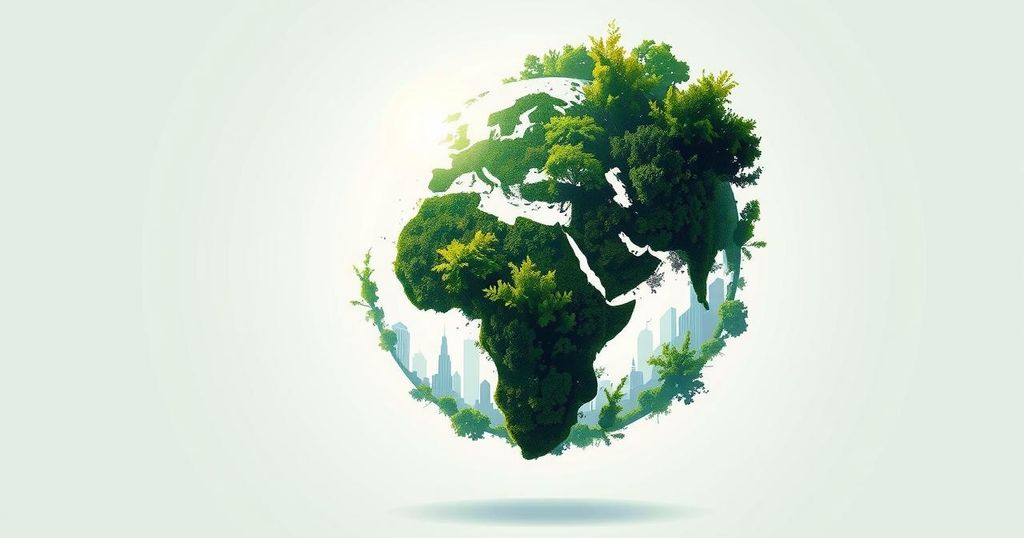WEF Report Identifies Armed Conflict and Environmental Risks as Key Global Concerns
The WEF Global Risks Report identifies armed conflict, misinformation, and environmental risks as significant global concerns for the future. Based on a survey of over 900 leaders, it reflects fears of geopolitical instability and highlights the immediate threat of conflicts. Furthermore, misinformation poses a major short-term risk, while environmental challenges dominate the long-term outlook, necessitating cooperative efforts to mitigate these risks.
The World Economic Forum’s (WEF) Global Risks Report highlights armed conflict, misinformation, and environmental risks as pressing global concerns. The report, which draws from a survey of over 900 leaders in various sectors, illustrates heightened fears of division reminiscent of the Cold War, exacerbated by recent global conflicts and climate events.
Currently, state-based armed conflict, particularly due to the Ukraine war, ranks as the most significant risk for 2025. The report reflects concerns over how geopolitical shifts, such as changes in U.S. administration policy toward Russia and the Middle East, could exacerbate or alleviate tensions in these regions.
Misinformation continues to pose the top short-term risk, threatening societal cohesion and governance. The report underscores the difficulty in distinguishing between AI-generated and human-generated misinformation, emphasizing the role of technology in the proliferation of false information alongside other pressing issues like cyber-espionage, extreme weather, and pollution.
Long-term risks are dominated by environmental concerns, with extreme weather events and biodiversity loss identified as primary threats over the next decade. Respondents overwhelmingly recognize the growing dangers presented by both climate change and ecological degradation, with expectations of increased severity in the global landscape by 2035.
The report warns of a fragmented global order marked by competition among powers, leading to strain on multilateralism. The WEF advocates for rebuilding trust and resilience among nations through enhanced dialogue and cooperation, urging leaders to foster collaboration in the face of rising geopolitical tensions.
This report was released in conjunction with the WEF’s annual gathering in Davos and is based on a comprehensive survey conducted among global leaders across various sectors. It seeks to assess current and future risks to global stability, encompassing a wide range of issues from armed conflict to environmental degradation and misinformation. The insights derived aim to guide policymakers and leaders in addressing these pressing challenges.
The WEF’s Global Risks Report serves as a stark reminder of the multifaceted risks facing the world today, emphasizing the urgency for leaders to address armed conflicts, misinformation, and environmental degradation. Acknowledging the interplay of these threats, the report calls for collaborative efforts to build resilience and foster international trust, ensuring a sustainable future amid increasing global tensions.
Original Source: healthpolicy-watch.news




Post Comment